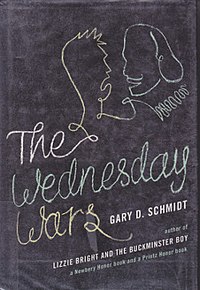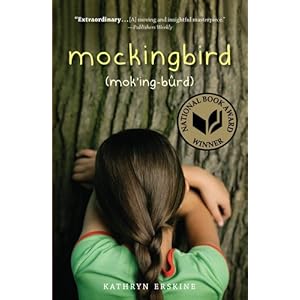 I'm slowly working my way through the books on the Mock Newbery 2012 list. Is there an official list? No. But there are different sites, libraries and librarians, that are starting to compile a list of possible contenders. Inside Out and Back Again by Thanhha Lai is on that list. If I were to use one word to describe it, it would be: moving.
I'm slowly working my way through the books on the Mock Newbery 2012 list. Is there an official list? No. But there are different sites, libraries and librarians, that are starting to compile a list of possible contenders. Inside Out and Back Again by Thanhha Lai is on that list. If I were to use one word to describe it, it would be: moving.This wasn't entirely what I'd expected. I had briefly read a few reviews, and saw it on multiple lists, so purchased it feeling it would likely pan out as a good investment. What I didn't know until it arrived was that it was a story written as poetry. Poetry. Hmm. I'm not a real big poet, feeling like a fish out of water or a bull in a chinashop. I fear what I perceive to be the flow and rhythm. I fear not understanding the message the author is implying.
I dove into this head first, at least after the first few pages where I waded in cautiously. In conquering the above fears I found the story moving and powerful. It is the story of a girl living it Vietnam in a time of internal strife. Her father is gone missing, part of the war effort. Her family, struggling to survive, eventually leaves on a boat to Guam. From there they leave as refugees to the United States, Alabama to be exact. It is at that point that I truly felt Ha's (the girl) struggle. She is smart, kind, and strong, but mocked as a stranger in a new place. The struggle to fit in pulls at the heartstrings, and her interactions in the school brought me to my own classroom. I wondered about the ELL students in my classroom, and the struggles that they must experience (even on a much different level). The story made me wonder about my own practice and how I can develop into a champion for my ELL students.
Rating: 4.5 of 5. I struggled with it in the beginning but the middle to end were magnificent. Certainly a contender for the Newbery Award in 2012.












